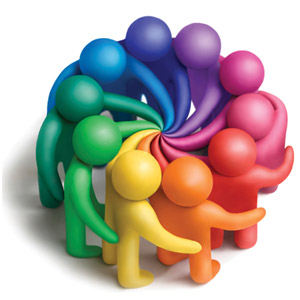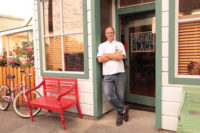It’s been a few months now since I graduated and started working. The rapid-fire information dumps have subsided, or at least I now have become acclimated enough to know the frequently-used company acronyms and am not left bewildered by conversations with coworkers and managers.
While work has included less abstract reading and scientific experimentation than graduate school, and is more focused on attaining on-target results as quickly as possible, a few similarities exist between school and work. There is still “course material” to learn, but no syllabus is provided, so a good deal of self-teaching is required. The initiative to ask key questions is a must. Instead of my program of study including exploratory courses like grain processing, statistics, carbohydrates in food or analytical bread baking, my “first semester” at work consists of learning many software programs, company procedures, product offerings, processing capabilities, pricing limitations, business strategy and ingredient sourcing, as well as everyone’s name and role.
A few of the biggest lessons I’ve learned thus far are not particularly original: “It’s not what you know, but who you know,” and “Two or three heads are better than one.” After fruitlessly searching for a commercially produced, kosher/pareve, heat-stable, oil-based cocoa flavor myself, it was revolutionary for me when a coworker simply suggested asking the flavor expert down the hall to recommend one. After all, this expert knows the options the best. What a novel idea!
I’ve discovered first-hand how time is of the essence in the for-profit industry. Workers must gather information as quickly as possible, make a justifiable choice based on the facts attained and prioritize tasks effectively to ensure that time lines are met. This can be a lot to manage when first learning all of the unfamiliar software programs and protocols.
Thankfully, I discovered that coworkers are wonderful resources for sharing experience-based knowledge and recommending a plan of action. Since interactive training is such a large part of on-the-job learning, and projects often require a good deal of teamwork, I’ve observed how invaluable interpersonal skills are.
An appreciative thank-you goes a long way, and there are multiple correct ways to accomplish the same task. Keeping an open mind to learning new work practices and adapting to procedural/organization changes has helped me become accustomed to working with many individuals in a corporate environment. Also, I’ve noticed that my efforts to return aid provided are well-received, and the continual give-and-take of assistance helps foster a congenial, winning-team atmosphere.
Finally, a piece of advice I received for being successful in graduate school seems to be just as applicable—if not more so—in the professional world: Don’t just identify a problem, offer a feasible solution and be helpful.
Elyse Buckley recently graduated from Kansas State University and is now a cereal research and development technologist at Kerry Ingredients and Flavors.







